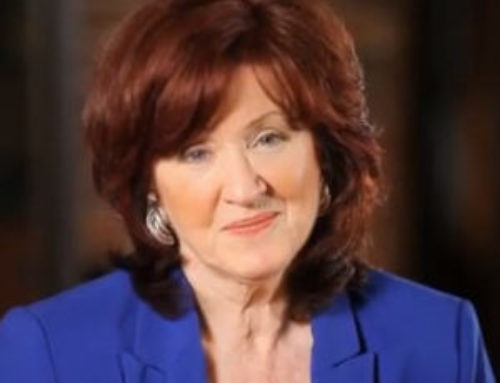Insurance Decisions: Do I Take Insurance? The Answer is No
During consultation calls, I almost always hear the question, “Do you accept insurance?” I’m sorry, the bad news is no. I do not accept insurance. As a marriage coach, I do not diagnose mental health issues. There’s a fine line between marriage coaching and therapy, as insurance will only cover medically-necessary things. A happy marriage is a cornerstone, but for something to be considered medically necessary, there must be a diagnosis. The “problem” is that most of the couples that I work with aren’t crazy; they’re just having trouble communicating.
Why I Don’t Accept Insurance
If you’re thinking about contacting me, you’re probably feeling resentment toward your partner. There have been expectations and issues left unresolved for far too long. Perhaps you’ve gone outside your marriage to get your needs met? That’s one type of betrayal, but betrayal can also include spending too much time at work, obsessively playing video games, hanging out with friends, shopping, or excessively spending money. I don’t accept insurance because these things are not medical issues and therefore not covered.

My Role as Your Coach
It’s been my experience that most clients resist getting help. There is a difference between being “broken” and not understanding what it takes to create a happy, sustainable relationship. You don’t know what you don’t know! My job as your coach is to help figure things out. Imagine your marriage like a Rubik’s cube. We have to look at all six sides to figure out which edges are correct and which panels we need to unscramble. What I do is a real art form!
Private Pay = Flexible Coaching
And that’s why I’m private pay. I’m free to do what I see fit to serve the needs of my clients. If you want someone straightforward, honest, blunt, and direct who wants you to move forward quickly, I am your coach! I don’t want to see you every week for six months, like a traditional therapist. I want to help you resolve your issues by teaching you skills to keep your relationship on track. I usually see clients for three 90-minute sessions over four to six weeks. I get results fast because a marriage can change the second you decide to change how you react and communicate. Your marriage will change as quickly as you can change your mind!
Why I Don’t Play Insurance Games
Now, I know changing habits is not easy. That’s what gives me job security. My commitment is to provide you with the skills you need within three sessions and hold you accountable for that change. It’s up to you and your partner if you want to do it or not. That’s why I don’t take insurance. I don’t play by their rules, and I don’t play their games. You are welcome to use your insurance elsewhere! You, like me, pay way too much for health insurance, so I understand if you want to use it! If so, please find a psychologist with convenient hours, schedule openings, and marriage specialization.
Why 45-Minute Therapy Sessions Don’t Work
Just understand that most therapists will have a surcharge or hefty copay for a 45-minute session. Now, I know that length works for an individual because that’s what I use in life coaching sessions. When I work with individuals for 50 minutes, that’s plenty of time. But when you have two people who need to feel understood before they can open up, that takes more time.
In a 45-minute session, you each get about 12 minutes to talk, just enough to start complaining about your partner and getting wound up in negative energy. Then the therapist will say, “Oh, hold that thought. Time’s up!”
Most therapists see eight clients a day, with only five minutes between them. So more often than not, sessions end no matter how you’re feeling. You get in the car, and the “party” keeps going because your car becomes a pressure cooker! “I can’t believe you said that! You’re so mean to me! Therapy is never going to work.”
Why Marriage Coaching Works Better
That’s why traditional marriage counseling has a low success rate, only about 15 to 20%. To be honest, I believe most of that success is because couples realize, “Hey, if we save our money, go out to dinner, stop fighting, and be nice to each other, we don’t have to pay this therapist anymore!” The goal of marriage coaching is to get to the root of the problem, then quickly learn skills to fix those problems. You don’t want to spend a lifetime being dependent on me, the coach!
Now, if you need more time or have a variety of issues, I’m certainly available. There are many couples who need my help. I don’t want to see you every week for the next six months because nobody has time for that! My superstar clients regularly bring more couples to me after such a positive experience with marriage coaching.
So, I hope you understand why I do not accept insurance. If you have any additional questions, you’re welcome to schedule a free 17-minute phone call with me at www.parentmarriage.com. Head to my online calendar and schedule your first 90-minute couple’s session or 50-minute individual session with no risk. I also offer online help via secure Zoom video conferencing. Do it from the comfort of your living room if that’s what it takes!
Ready to Get Started?
Feel free to call me now at 305.986.2905! My name is Matthew Hoelscher, and I look forward to working with you!
FAQs
Do you accept insurance for marriage coaching?
I do not accept insurance. Marriage coaching is not covered by insurance because it is not considered a medically necessary service.
Can I get reimbursed by my insurance for coaching?
Most insurance plans don’t cover marriage coaching. You’re welcome to check with your provider, but it’s generally not reimbursable.
How many sessions do you recommend?
I typically work with couples for three 90-minute sessions over four to six weeks. This allows us to address the issues quickly and effectively.
Do you offer online sessions?
Yes, I provide secure Zoom sessions, allowing you to attend from the comfort of your home.
How is marriage coaching different from therapy?
Marriage coaching is practical and solution-focused, helping couples develop the skills needed to communicate and resolve issues. Therapy often focuses on diagnosing and treating mental health issues.






Leave A Comment